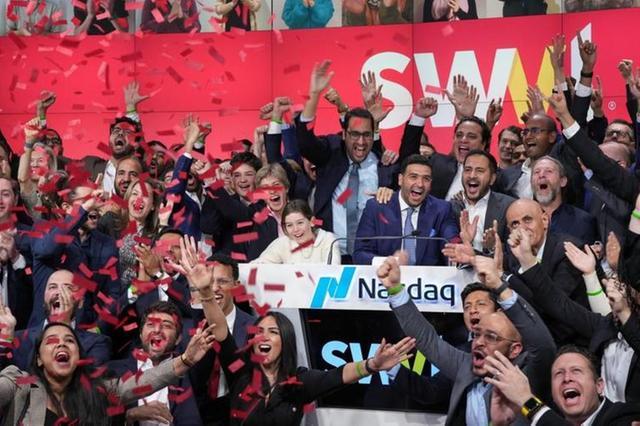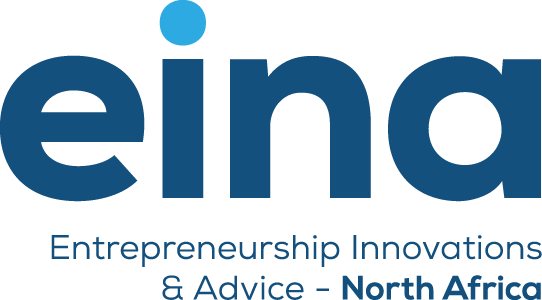Egypt: the meteoric rise of startups

By Sabine Cessou, journalist
Booming in Egypt, startups keep making headlines. And for good reason: they raised $156 million in capital in 2020, an increase of... 1,716% compared to 2015, according to the analysis and monitoring platform Africa Disrupt. With 491 million dollars in 2021, the increase remains exponential: 168% compared to 2020, according to Magnitt and the IT Industry Development Agency (ITIDA).
These levels of financial interest place Egypt in 4th African position after Nigeria, Kenya and South Africa according to the Afridigest analysis platform. In 2021, these four countries, dubbed the "Big Four", attracted 75% of all investments made in startups in Africa. Egypt accounts for 20% of startups in Africa, incubated and accelerated locally at 39% - a remarkable performance across the continent, notes the Egyptian Startup Ecosystem Report 2021, published by Disrupt Africa.
Information to note for all startupers in North Africa: the support organizations that finance the most in Egypt, sometimes open to non-Egyptian projects, are Flat6Lab (62 investments between 2015 and 2021), 500 Startups (43 transactions) , Algebra Ventures (23), The Cairo Angels (15) and Endure (13) - see the Supporting Organizations sheets on the Eina4jobs website.
Swvl, the first African startup listed on the Nasdaq
In March 2022 alone, five Egyptian startups raised more than $1 million, according to Afridigest: Khazna (Fintech, 38 million), Lucky App (Fintech, 25 million), Naqla (logistics, 10.5 million), EkSab ! (software and sports games, 3 million), Nexta (Fintech, 2 million).
The capital invested today reaches impressive amounts, enough to see "unicorns" emerging, such as Fawry, an electronic payments and financial services platform listed on the Cairo Stock Exchange. Or Swvl, an application that organizes an alternative public transport system (technological carpooling and private bus services allowing passengers to book and pay via its application, with a B2B market segment).
Founded in 2017 and incubated by the AUC Venture Lab at the American University in Cairo, Swvl is the first African startup to debut on Nasdaq on April 19, 2022 in the United States. Valued at $1.5 million, this company already operates in 115 cities and 18 countries across Africa (Egypt, Kenya), Asia, Europe and Latin America.
Growth sectors: “retail tech” and e-commerce
Also in transportation, the trucking app Trella raised $42 million in June 2021 from Maersk Growth and Saudi Raed Ventures, as well as Cairo-based venture capital firms such as Algebra Ventures. Founded in 2018 by four friends, Trella is in robust health three years later - even insolent, given the Covid-19 pandemic which has not affected it - with more than 350 regular charterers (including Coca-Cola) and 15,000 carriers.
According to the Egyptian Startup Ecosystem Report 2021, the 562 active startups in Egypt are mostly located in Cairo and employ 13,000 people. A share of 21% of them operate in “retail tech” (distribution technologies) and e-commerce. An Egyptian particularity since elsewhere in Africa, Fintech is queen. This only comes in second place on the banks of the Nile (12% of start-ups), ahead of e-health (9%) and ed-tech education (7.5%), then logistics and recruitment.
In the e-commerce “retail” sector, only 15 companies out of a total of 117 are inspired by the Amazon or Jumia model of multi-product sales, others specializing more in clothing or food products. Niche markets are the most buoyant, including that of B2B services in retail, which help merchants with inventory management and orders (20% of startups).
A budding interest in African markets
The recent expansions of Trella and Paymob startups in Pakistan and Saudi Arabia testify to the Egyptian private sector's interest in Asia, but also the Gulf countries, linguistically and culturally close, which also represent a significant source of capital.
Nonetheless, interest is now shifting south, ITIDA notes, with startups such as Vezeeta (booking appointments app with health services, based on patient reviews and notes, with online schedules, price of the consultation, etc.) which target African markets south of the Sahara.
The Vezeeta application, funded with 8 million dollars of capital venture in 2017 and 40 millions in 2020, is now based on a network of 35,000 "highly rated" doctors practicing 43 different specialties in six countries in the Middle East/Africa region. Vezeeta, another African success story, launched in July 2020 in the markets of Kenya and Nigeria, and had a total of 30,000 patients in these countries by the end of 2021. A promising start.
